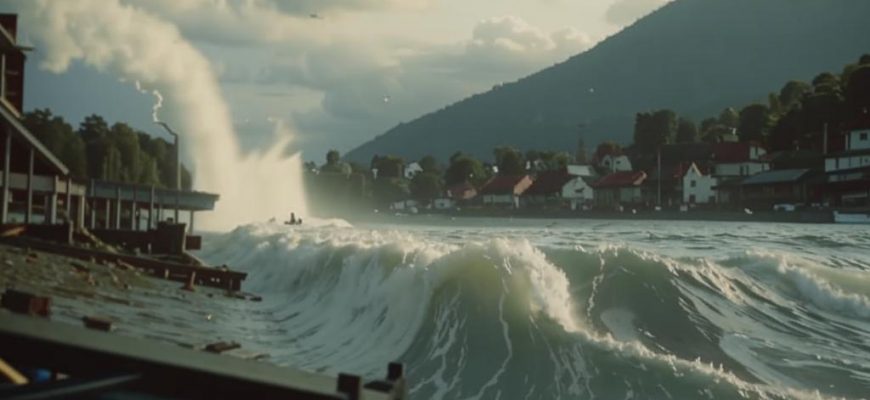The 2004 tsunami, also known as the Indian Ocean tsunami, occurred on December 26, 2004. It was one of the deadliest natural disasters in recorded history, caused by an undersea megathrust earthquake off the west coast of northern Sumatra, Indonesia. The tsunami resulted in catastrophic destruction and loss of life across 14 countries, with Indonesia, Sri Lanka, India, and Thailand being the hardest hit. The global outpouring of aid and the dramatic, heart-wrenching tales of survival and loss brought this disaster to the forefront of media coverage. The sheer scale of the tragedy and the personal stories of those involved have inspired various filmmakers to explore the event through documentaries and fictional narratives. Films about the 2004 tsunami aim to capture the human aspect of this natural disaster, focusing on personal stories of survival, loss, and the resilience of the human spirit in the face of overwhelming adversity.
“Tsunami: The Aftermath”, 2006
Director: Bharat Nalluri
This is a two-part HBO miniseries that explores the aftermath of the 2004 tsunami, focusing on a group of fictional characters whose lives are transformed by the disaster. The series blends narratives of grief, survival, and the complex process of rebuilding, alongside the critical response towards how the situation was managed by authorities.
Starring: Tim Roth, Chiwetel Ejiofor, Sophie Okonedo, Hugh Bonneville, Toni Collette, Samrit Machielsen, Kate Ashfield, Aure Atika, Will Yun Lee, George MacKay;
Production year: 2006;
Genre: drama;
Age: 18+;
Duration: 111 min.;
Rating: IMDB: 6,8;
These films and series provide different lenses through which the 2004 tsunami is viewed and understood, from harrowing tales of survival and loss to broader contemplations on life, death, and the human capacity to overcome extreme adversity.
The 2004 tsunami, one of the deadliest natural disasters in recorded history, has been the subject of various cinematic explorations, each offering a poignant window into the human spirit's resilience in the face of nature's unimaginable power. Films like “The Impossible,” paint vivid portraits of survival and the indomitable will to reunite amid chaos, drawing audiences into an emotional journey through the eyes of those who lived through the tragedy. These cinematic creations balance the thin line between respect for the disaster's impact and the inspirational stories of courage, compassion, and communal healing that emerged from the ruins. They serve not only as memorials to the lives lost but also as testament to humanity's capacity for recovery and solidarity in the darkest of times. Through the lens of film, the 2004 tsunami is remembered not just as a moment of catastrophe but as a profound narrative of human connection, resilience, and the universal quest for hope amidst despair.










